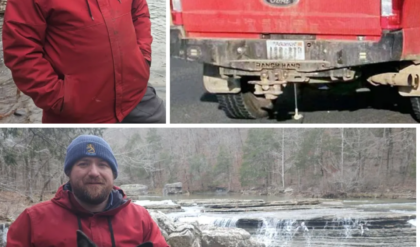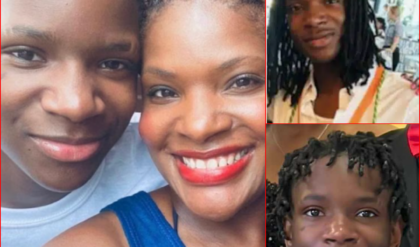
Ali Campbell has been on a mission since he was a teenager coming of age in Birmingham, England. It’s always been about promoting reggae. The UB40 vocalist has been immersed in the mellow but provocative genre courtesy of his friends.
“I fell in love with the music at an early age thanks to those I hung around with,” Campbell said. “My friends when I was growing up were West Indian and Jamaican. It was their music and they shared it with me and I’ve always been about sharing reggae with the world.”
It’s been an amazing run for Campbell, 58, who formed UB40, named after the document issued to those applying for unemployment benefits, 40 years ago.
UB40, which will perform Saturday at the Trocadero, has sold more than 70 million albums and had more than 50 singles chart in UK. “Red Red Wine,” “(I Can’t Help) Falling In Love” and “Breakfast in Bed” are some of their worldwide hits.
“I never could have imagined having all of this success,” Campbell said. “To have so much success with what is actually protest music is extraordinary. Everything has been great.”
Need a break? Play the USA TODAY Daily Crossword Puzzle.
It hasn’t been a totally smooth ride for him. He left the band in 2008, followed by keyboardist Mickey Virtue. Toaster Astro stayed until 2013. Campbell, Virtue and Astro formed a new version of UB40 in 2014.
However, Campbell’s brothers Duncan, and Robin Campbell, who have not spoken with Ali for years, also use the band’s name. It’s not the first time there’s been a legal issue with brothers fighting over a band’s name.
“It’s funny how that is about brothers in this business,” Campbell said. “It’s one of those things. I had to leave the band. It wasn’t about the music. I had some issues that couldn’t be resolved but in the end it worked out. I’m on great terms with who I’m playing with and I get to play the songs that so many people love. It’s unfortunate how I got here but I’m not going to complain. I’m just moving on.”
UB40’s schedule is loade, but that’s no big deal for Campbell. “We’re a live band and we’ve always been a live band,” he said. “That’s a good thing given the state of the industry. It’s all about playing out today. We put everything into it.”
Campbell and his bandmates are also focused on Red Red Wine. They are not the first act to market their own wine. Maynard James Keenan of Tool has his own vineyard. The Who put out a bottle of champagne to coincide with its 50th anniversary tour.
“Why not do all that you can when you’re in a band,” Campbell said. “The possibilities are limitless. I’m enjoying all of it at this point after being in this band for so many years.”





